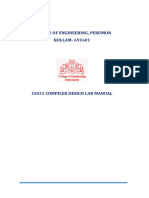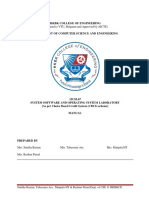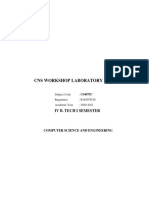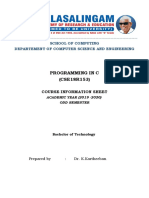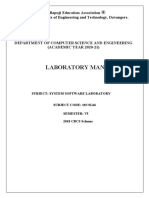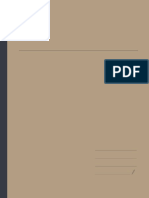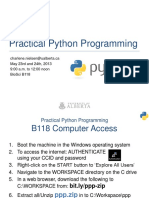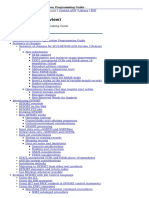0% found this document useful (0 votes)
20 views29 pagesCD LabFile2
The document outlines the structure and objectives of the Compiler Design Lab for B.Tech students at Pranveer Singh Institute of Technology, Kanpur. It includes the vision and mission statements of the institute and department, program educational objectives, program outcomes, and specific outcomes for students. Additionally, it provides a list of experiments and code examples related to compiler design, including lexical analysis and parsing.
Uploaded by
ganyasurvey50Copyright
© © All Rights Reserved
We take content rights seriously. If you suspect this is your content, claim it here.
Available Formats
Download as PDF, TXT or read online on Scribd
0% found this document useful (0 votes)
20 views29 pagesCD LabFile2
The document outlines the structure and objectives of the Compiler Design Lab for B.Tech students at Pranveer Singh Institute of Technology, Kanpur. It includes the vision and mission statements of the institute and department, program educational objectives, program outcomes, and specific outcomes for students. Additionally, it provides a list of experiments and code examples related to compiler design, including lexical analysis and parsing.
Uploaded by
ganyasurvey50Copyright
© © All Rights Reserved
We take content rights seriously. If you suspect this is your content, claim it here.
Available Formats
Download as PDF, TXT or read online on Scribd
/ 29














